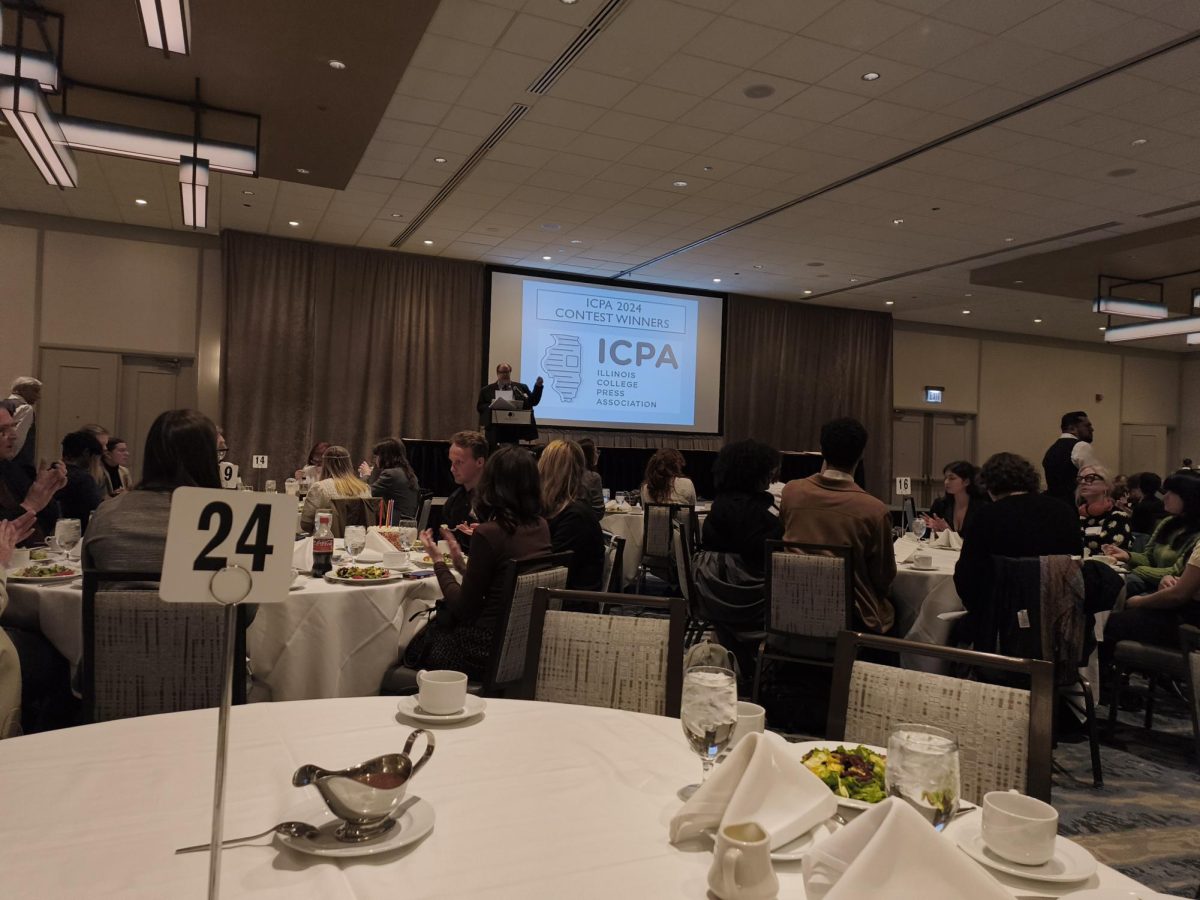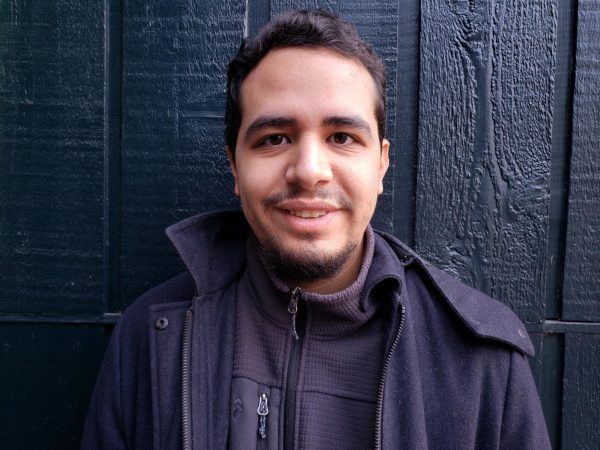NEIU alum Eddie Bocanegra returned to his alma mater as the keynote speaker for NEIU’s spring commencement ceremony on May 15, 2025.
Bocanegra has dedicated his career to criminal justice reform, civic engagement and curbing community violence. He has also consulted for the U.S. State Department and has been featured in several major news outlets such as National Public Radio (NPR), The New Yorker and The Atlantic.
Beginning his speech, Bocanegra reflected on his own commencement ceremony at NEIU, “13 years ago, I crossed a very similar stage. I did so as a speaker and as a graduate student of an amazing institution. I wore a similar cap and gown and remembered the weight of it. It felt like more than fabric. It felt like the weight of a struggle, of redemption, of possibility.”
Bocanegra grew up in an immigrant family in Chicago’s Little Village neighborhood where, as he puts it, “violence was routine, not rare.”
Bocanegro graduated from NEIU in 2012 with a bachelor’s degree in Interdisciplinary Studies and Social Work. Bocanegro started to take night classes at NEIU after serving a 14-year prison sentence.
During the time when Bocegra was taking night classes at NEIU, he became active in Cure Violence (formerly CeaseFire), a community that is focused on curbing gang violence. While working for Cure Violence, Bocanegra developed Urban Warriors, a mentorship program that connected military veterans with at-risk youth. He realized he could use his past to prevent others from going down the same path he once did. He said, “My experience did not disqualify me. It gave me insight.”
Bocanegra encouraged the graduates to take their personal stories and, as he put it, “build something better,” whether that is through their careers or extracurricular activities. Bocanegra gave the graduates some food for thought, “There is purpose to what you have lived through. Give that pain a job and don’t let it go to waste.”
Bocanegra speaks from experience, as he himself was judged by his worst decisions. He offered words of encouragement for those who have been stereotyped or judged, “No one else gets to author your ending. That is you and you alone.”
Bocanegra acknowledges that NEIU students may not have had the typical transition from high school to college, sometimes riddled by hardships. Bocanegra encouraged the graduates to embrace their perseverance, “What you have survived is not a weakness, it is your power.”
Bocangrea also reminded NEIU graduates to embrace the struggles and setbacks they have gone through, “Every struggle, every setback, every moment you feel like giving up, those moments force your resilience. Don’t erase them. Don’t minimize them. You didn’t just earn a degree. You’re in the right to believe in your strength.”
“You belong in every room you enter. You are more the sum of what you’ve been through. You carry dreams worth chasing and wisdom worth sharing. And this world, your community, your family, your future, your profession, needs you.”
Bocengra shared a story from the Bible of how Jesus healed ten people with leprosy. Of those ten people he healed, only one returned to express gratitude.
“Having a felony conviction, to me, feels like having leprosy,” Bocanegra said. “And I think the same can be said for many of the struggles that you’ve encountered. I share that story because every day that I wake up, I aspire to be that one person who came back to express gratitude.”
Bocanegra concluded his speech with gratitude to NEIU, the faculty and the graduates, “I see you, I celebrate you, I believe in what you are about to do next.”









